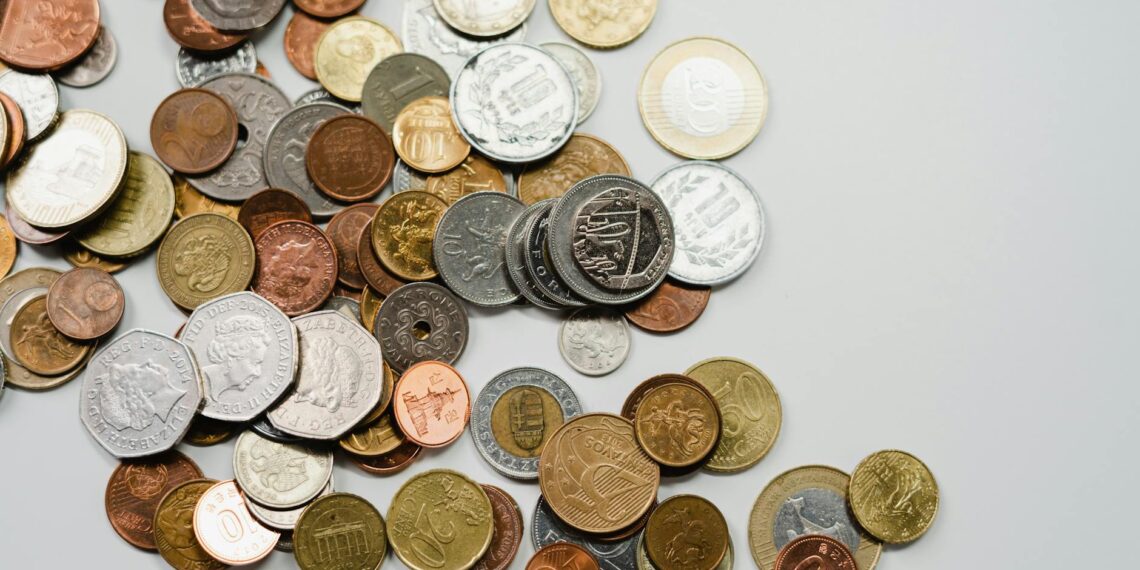Coin collecting, also known as numismatics, is a rewarding hobby that combines historical interest, artistic appreciation, and the thrill of discovery.
Here’s a guide to help you start your journey:
- Start with what you have: Look through your pocket change, piggy bank, and old coin jars.
- Bank Rolls: Obtain rolls of coins from banks and search for interesting pieces.
- Coin Dealers: Reputable coin dealers can be a great resource for buying, selling, and trading coins, as well as offering expert advice and evaluation.
- Coin Shows & Auctions: Attend local coin shows and larger auctions for a wider selection and potential rare finds.
- Online Marketplaces: While convenient, be cautious and research sellers thoroughly to avoid counterfeit coins and ensure fair pricing.
- Flea Markets & Antique Shows: These can be good places to discover coins, but be aware of potentially inflated prices or problematic coins.
- Magnifying Glass/Loupe: Examine coin details, mint marks, and potential errors.
- Cotton Gloves: Handle coins carefully to prevent oils and acids from your skin from damaging their surfaces, especially uncirculated coins.
- Coin Albums or Holders: Protect and organize your collection. Opt for archival-quality, PVC-free materials.
- Reference Books: Like the U.S. Coins “Red Book” and the Official American Numismatic Association (ANA) Grading Standards.
- Notebook: Track your purchases, discoveries, and any interesting information about your coins.
- Coin Grading Basics: Understand the Sheldon scale (1-70) and its descriptive terms (e.g., Mint State, Extremely Fine, Good) to evaluate coin condition and value.
- Mint Marks: Learn to identify the mint where a coin was produced.
- Varieties and Errors: Some coins have variations or errors that make them more valuable to collectors.
- Join a Coin Club: Connect with other collectors, share knowledge, and learn about the hobby.
- Choose a Focus: Collecting by country, time period, denomination, mint mark, or design theme can help narrow your search.
- Start Small: Begin with more common and affordable coins to gain experience and understanding.
- Gradually Expand: As your knowledge and budget grow, you can explore rarer and more valuable pieces.
- Preservation is Key: Proper storage in appropriate holders and maintaining a stable environment is crucial for preserving your coins’ value and condition.
- Books: Several books cater to beginner coin collectors, including the “Whitman Guide to Coin Collecting” and “Coin Collecting For Dummies”. You can find these at bookstores or online retailers like [whitman.com] or [Amazon].
- Websites and Forums: Numerous online resources provide information, guidance, and community forums for coin collectors.
- Local Coin Shops and Dealers: Offer expertise, advice, and a selection of coins for sale.
By following these steps, researching the coins you’re interested in, and connecting with the coin collecting community, you can embark on a fun and rewarding journey into the world of numismatics.









What coins should a beginner collect?
Thanks for asking. If you want to buy your coins, Morgans are popular for beginners.
What is the best way to start collecting coins?
The internet is the best place to learn about coin collecting these days. Begin by searching for the type of coins you are interested. Once you think you have some idea about the coins you are interested in, search Facebook, Yahoo! and Instagram for groups that discuss these coins and join them.
How do you get coins appraised without getting ripped off?
Getting a professional appraisal will be the most accurate way to determine a coin’s value. You can get your coins appraised at a local coin shop or at a coin show.
What is the most profitable coin to collect?
1943 Lincoln Steel Cent. One of the most unusual United States coins is the 1943 steel Lincoln cent. …
1864 Two Cents. …
1883 “No Cents” Liberty Nickel. …
1796 Draped Bust Quarter. …
1876 Liberty Seated Half Dollar. …
1964 Kennedy Half Dollar. …
1921 Morgan Dollar. …
1979 Susan B.